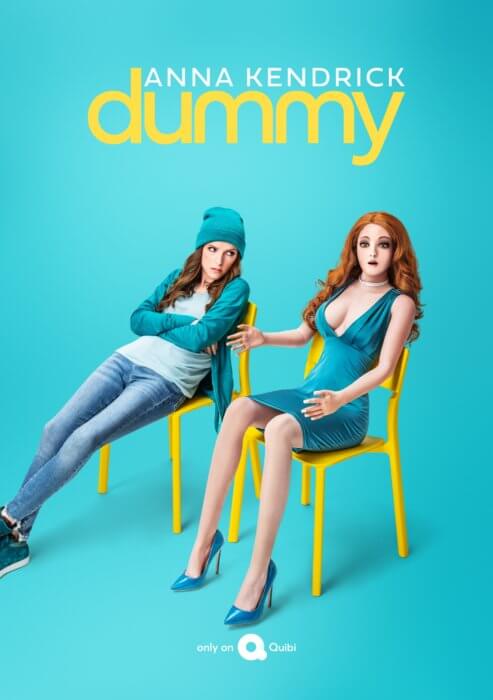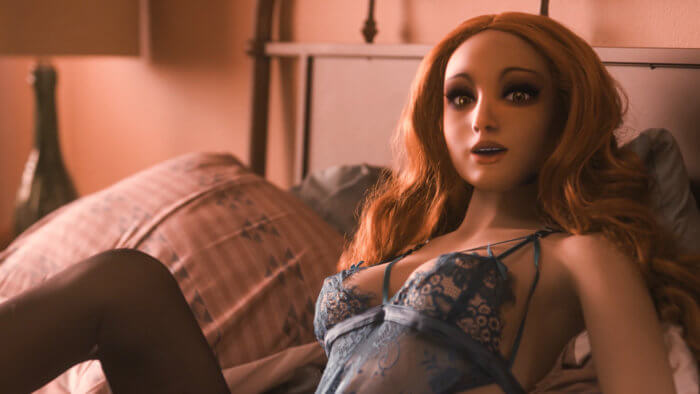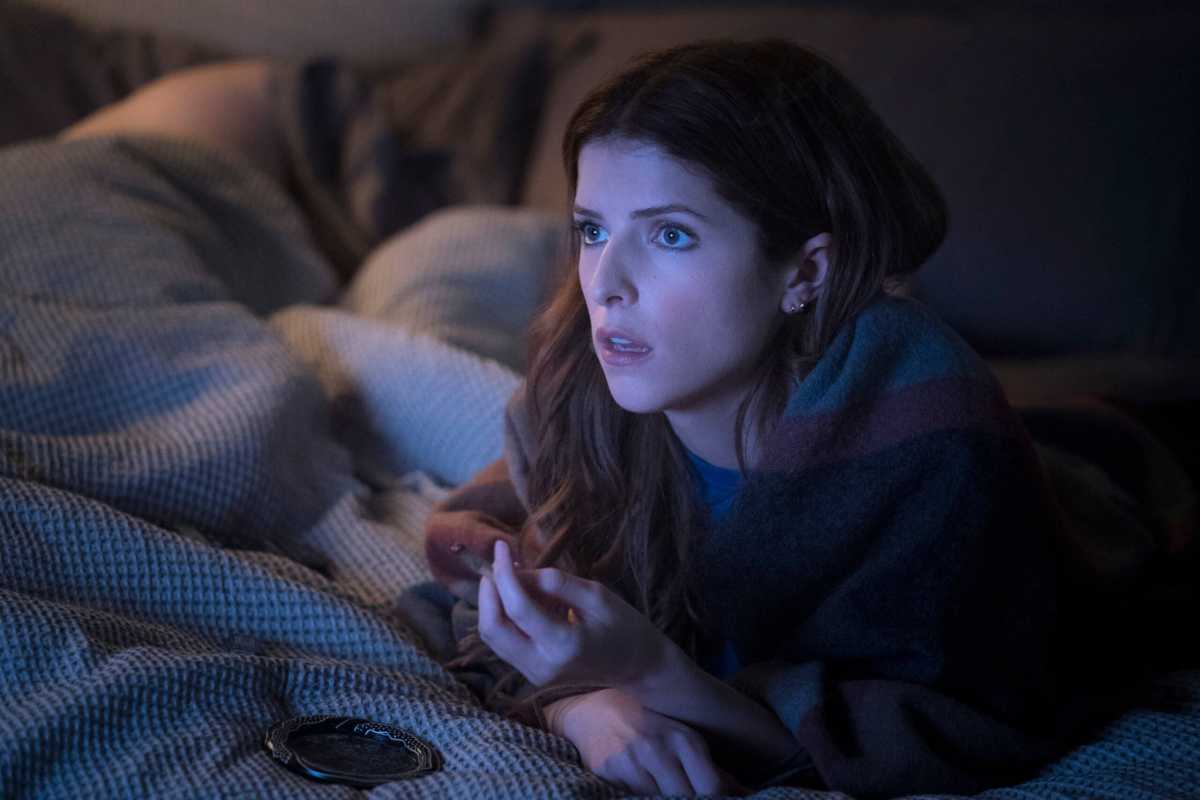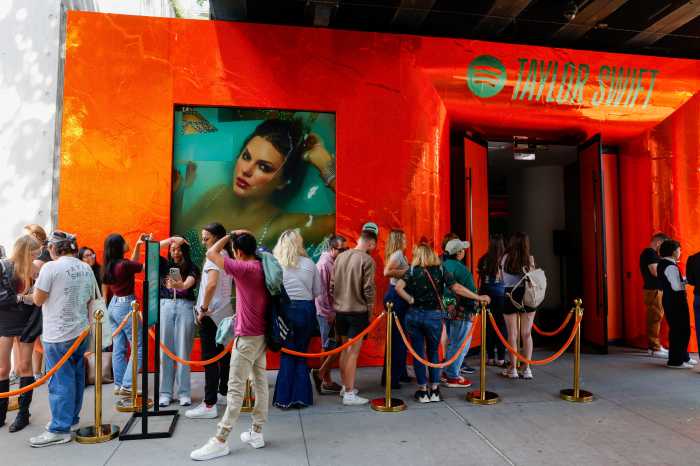Ten minute TV? That might sound a bit crazy or foreign to what we’re used to, but Quibi, the new short-form mobile video platform has mastered the art of ten minute entertainment, and has a whole slew of amusing and quirky shows to prove it.
Take, ‘Dummy,’ one of Quibi’s latest series from comedy writer Cody Heller. ‘Dummy’ stars Anna Kendrick and follows her relationship with her boyfriend’s sex doll, who hilariously has just come to life. The story is semi-autobiographical for Heller, who took inspiration from her own experience with her now-fiancé Dan Harmon—who has gained acclaimed recognition for creating shows like “Community” and “Rick and Morty”— and her own personal journey of being a woman who is coming to terms with her own insecurities to craft and further the most intimate relationship one can have—the personal relationship with yourself.
Heller sat down with Metro to chat more about what went into writing and creating her solo show, why ‘Dummy’ is perfectly placed at Quibi and more on what she hopes audiences take away from this personal project.
What inspired you to write and create ‘Dummy?’
I had been a TV writer for a while and I had a writing partner, but we were nearing the end of our writing partnership so I needed a writing sample as a solo writer for staffing season. So, I started working on a pilot, but it just wasn’t going well. I had also just started dating my now-fiancé, Dan Harmon, who is a big name in the TV writing world and I was way less experienced—there was just this sense of me worrying about him not thinking I was a good writer and stuff going on internally. At the beginning of our relationship, we decided that we were going to be really radically honest with each other and just have this relationship be different from any other type of relationship—be honest about all of our sexual kinks and fetishes, watch porn together and be really highly evolved blah, blah. One of the things that came out was that was that he told me he had a sex doll. At first, I was just like oh that’s cool, it was funny and I gave her a fake nickname and I joked about it. Then, as we started getting more and more serious with dating and I was spending more time at his house, I was thinking about this sex doll and where she was and what closet she was in—I was becoming jealous of this inanimate object. So basically, I put aside the other pilot I was working on and I decided I just needed to get some thoughts out about this. I was so used to having a writing partner before though, and writing on your own is way different and really lonely, so it kind of all came together with this weird mixture where the sex doll became my writing partner in my head and I was writing this semi-autobiographical piece about me becoming friends with Dan’s sex doll. It kind of just went from there—it was meant to just be a spec pilot to get me work on other shows, and then it kind of took on a life of its own.

So how did ‘Dummy’ go from being a spec script to landing a series on Quibi?
It went through a million different versions of different things before it finally became a Quibi show. Basically, it was just a sample and I was using it just to take meetings and stuff, and I met with this guy, Colin Davis, who at the time worked for TBS. He said TBS was going to do this new fifteen-minute programming blocks and they thought ‘Dummy’ would be perfect for that, so I started writing it for TBS. Then that fell apart, just the whole block fell apart at TBS and I was bummed out because the show wasn’t going to happen. Then Colin gave me a call a year later, we had stayed in touch as friends, and he had just gotten the job with Quibi. He had shown them the script, they loved it and wanted to meet with me the next week. Colin has really been a champion and basically my biggest supporter, without him this show would have never gotten made and so I’m indebted to him forever for seeing something inside of this that was worthwhile.
After signing with Quibi, what was production like?
Essentially, I had all of this material that was the old TBS version of it, and with Quibi, every episode has to be ten minutes or less—it can’t be more. So, I basically did just like surgery and took almost all of the material that I had written and just laid it all out. I went to the desert alone and just locked myself in a hotel room and said, ok let me reconfigure this season into ten 10 minute episodes. So I did that, and came out from that desert trip with the episodes. It all kind of happened really quickly though. Anna Kendrick was interested in playing the role, and when she did sign on we had to shoot right away because she was shooting a movie in the summer and we had to shoot it in this short little pocket of time that she had available. It was very quick, it was an 18-day shoot for 100 plus pages of material and it was amazing—truly the most magical 18 days of my life. It was just a really special experience. Because of the subject matter, I really wanted to have as many women on set as possible. We had a woman director, we had a woman DP, most of the department heads were women, we also had some amazing men, but everyone in the cast and crew truly loved each other. This was my first time truly being a show-runner and it being my show and being the leader, I really tried to take that job as seriously as possible—and by that I mean not too seriously at all because I’ve done so many shows where people mistreat people and I never want to mistreat anyone. This art form is so collaborative, and often times I feel that if someone in the props department makes a mistake, instead of yelling, I would just go, wait, maybe it’s meant to be that way, let’s embrace it. The universe works in weird ways, so maybe it should be that way, and then maybe it comes out better than it should have because of someone’s mistake. I just really tried to embrace that philosophy. Quibi also was so supportive throughout—I give so much credit to Jeffrey Katzenberg for allowing this crazy show. There are so many just insane moments where you go, ‘Ok what am I watching?’ I give him a lot of credit for understanding and putting faith into this, so I really have nothing but praise for Quibi and how they work.

What do you think the design of Quibi brings for the audience experience overall?
For me as a writer, I definitely think it was hard for me to wrap my head around writing something this way, because I’m so used to half-hour shows where it gives you time to set up an obstacle and a conflict and all of these things that are normally the formula of how you write a show. So you need to cram a lot into ten minutes to make it where the audience feels rewarded and fulfilled in such a short amount of time. But I did find it to be a really fun challenge, and ultimately it all came together in the editing room. But Jeffrey is on to something, it’s very binge-worthy and each episode definitely leaves you wanting more.
Overall what do you hope audiences take away from the series?
I hope it makes people laugh and forget about their worries for a bit and I hope that it gets people thinking about gender a little bit. But I think ultimately, what the show is about is that every woman has a voice inside of her head that is kind of her worst enemy. It’s the voice in your head that when you look in the mirror, it says you’re fat or you’re ugly or you’re not smart enough or good enough. This show is kind of, for me, about making friends with that inner voice instead of letting it be your enemy—so, it’s really about a woman’s relationship with herself. I hope that women who watch it relate to that and laugh about it and see the ridiculousness of what it is to be a woman in this time.
‘Dummy’ is available now to stream through Quibi.




























